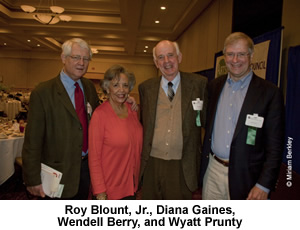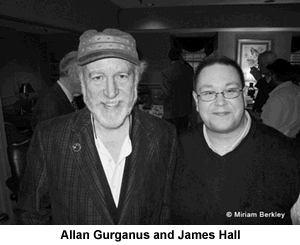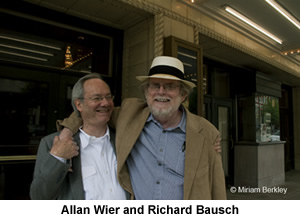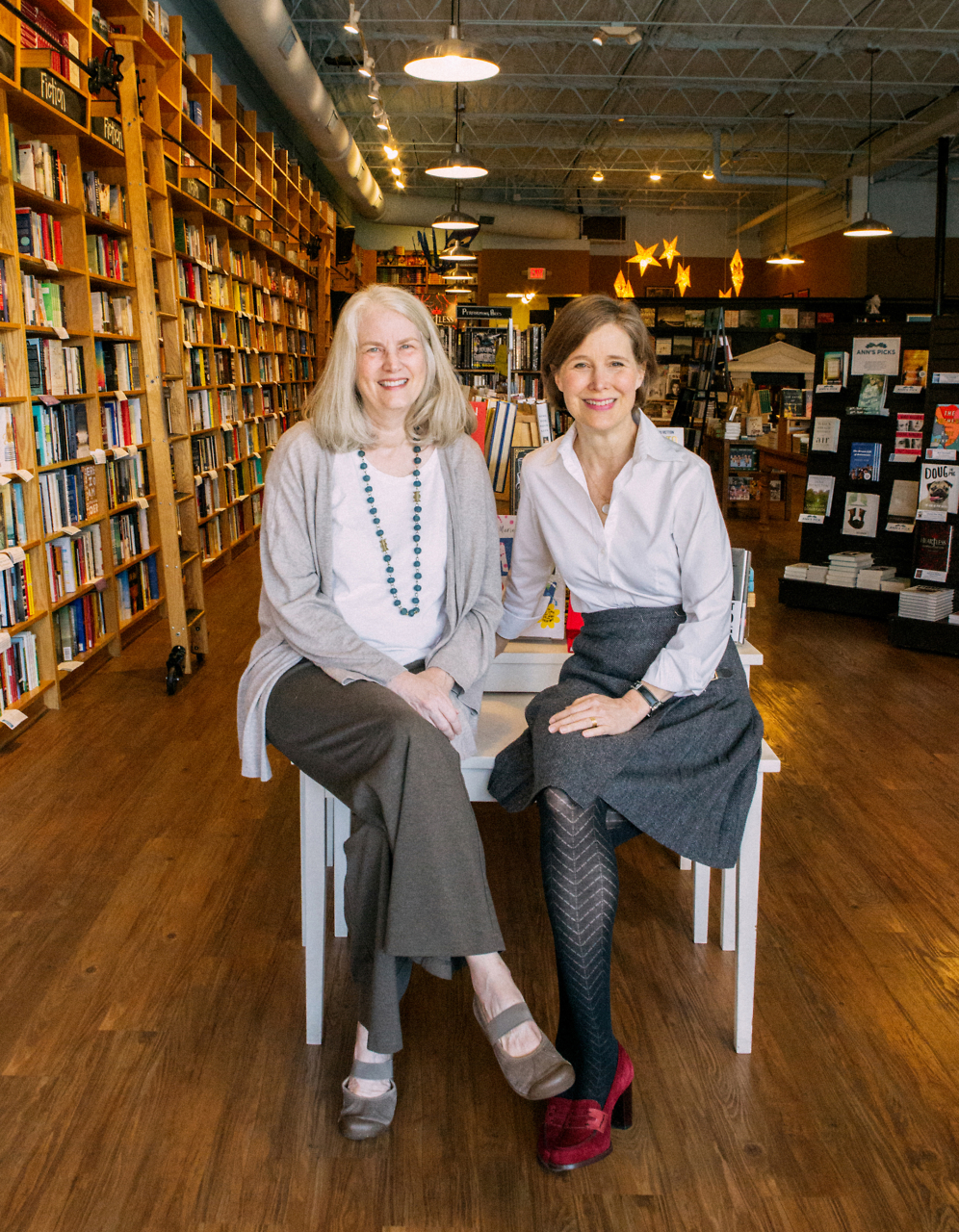Report from Chattanooga, Day Two
At the Conference on Southern Literature, the Fellowship of Southern Writers is more than the name of an honor society
 April 18, 2011 At the Conference on Southern Literature, the first order of business Friday morning was the induction of Harper Lee into the Fellowship of Southern Writers, and no one was surprised that the guest of honor failed to appear. Wayne Flynt, emeritus professor of history at Auburn University and a close friend of the reclusive author, accepted on her behalf and gave a thirty-minute talk. He began his remarks by asking everyone who had read To Kill a Mockingbird to raise a hand. In the crowd of 200-300, there didn’t seem to be a single person who wasn’t waving one arm in the air. Granted, the audience at a Southern literary conference isn’t exactly a random sample, but it’s hard to think of any other work of Southern literature that would have gotten the same unanimous response.
April 18, 2011 At the Conference on Southern Literature, the first order of business Friday morning was the induction of Harper Lee into the Fellowship of Southern Writers, and no one was surprised that the guest of honor failed to appear. Wayne Flynt, emeritus professor of history at Auburn University and a close friend of the reclusive author, accepted on her behalf and gave a thirty-minute talk. He began his remarks by asking everyone who had read To Kill a Mockingbird to raise a hand. In the crowd of 200-300, there didn’t seem to be a single person who wasn’t waving one arm in the air. Granted, the audience at a Southern literary conference isn’t exactly a random sample, but it’s hard to think of any other work of Southern literature that would have gotten the same unanimous response.
Flynt went on to speak about the book’s universal appeal, citing its use in schools all over the world. “Teachers have decided they will pass along civilization’s most enduring values by teaching this book,” he said. He told a few anecdotes about Harper Lee’s remarkable older sister, Alice, who continues to practice law at age 100. As for the author herself, Flynt respected her privacy by saying little except that she is outspoken and funny, and that his service as a stand-in had spared us all what would surely have been “the world’s shortest acceptance speech” from her: a very brief and gracious thank-you.
 Claudia Emerson, Ron Rash, and Richard Dillard discussed “Revision and All that Jazz” in a panel moderated by Wyatt Prunty. Dillard spoke about the creative process, which, as he put it, is “not irrational but arational”—that is to say, not a product of reason or intellect, but of the dreaming mind. “Whatever the muse is willing to give me, I take it and say thank you,” he said. Revision is not necessarily separate from that process, he explained, noting that one approach to revising involves re-entering the original creative state of mind, in the hope of expressing it more perfectly. Claudia Emerson took a show-and-tell approach, reading a poem in its pre- and post-revision forms. It was an excellent demonstration of the way a small shift in perspective can have a profound effect on the work, and can open the writer to new possibilities. Ron Rash, quoting Flannery O’Connor, likened the technical side of revision to “picking ticks off a dog,” but essentially echoed Emerson and Dillard in a belief that revision is part of the imaginative process.
Claudia Emerson, Ron Rash, and Richard Dillard discussed “Revision and All that Jazz” in a panel moderated by Wyatt Prunty. Dillard spoke about the creative process, which, as he put it, is “not irrational but arational”—that is to say, not a product of reason or intellect, but of the dreaming mind. “Whatever the muse is willing to give me, I take it and say thank you,” he said. Revision is not necessarily separate from that process, he explained, noting that one approach to revising involves re-entering the original creative state of mind, in the hope of expressing it more perfectly. Claudia Emerson took a show-and-tell approach, reading a poem in its pre- and post-revision forms. It was an excellent demonstration of the way a small shift in perspective can have a profound effect on the work, and can open the writer to new possibilities. Ron Rash, quoting Flannery O’Connor, likened the technical side of revision to “picking ticks off a dog,” but essentially echoed Emerson and Dillard in a belief that revision is part of the imaginative process.
Near the end of the session, the writers began discussing the issue of originality and literary antecedents, and all three spoke about the importance of reading for anyone who has ambitions to write. Talking about his long career as a teacher of writing, Dillard said he was “most unsettled and disappointed by students who don’t read anything.”
The issue of would-be writers who don’t read also came up during the afternoon panel with Dorothy Allison, Allan Gurganus, Josephine Humphreys, and Allen Wier. The nominal topic of the session was “Discoveries Writers Make While Writing,” and while Humphreys and Wier both spoke about the surprises and flashes of insight that come with writing, the discussion wandered pretty far afield. Gurganus weighed in on the necessity of reading by saying, “Writing is exhaling, and reading is inhaling.” Wier described writing as “a higher form of readership.” All the panelists declared themselves devoted readers, especially Allison, who said that she takes two books everywhere she goes “because I might finish one and then what the hell am I going to do?”
 The conversation touched briefly on the difficulty of making a living as a writer. Gurganus—his North Carolina drawl dripping irony—said, “The license we have to question everything, celebrate everything, is so overwhelming that a financial reward would be vulgar.” Gurganus also had plenty to say about the need to write with clarity and courage. “We must always take the dangerous and difficult left-hand path,” he said. During the question period, a member of the audience came forward and spoke about her desire to be a writer, and about feeling silenced by the criticism she had encountered from teachers and other authority figures when she was young. Now middle-aged and unpublished, she felt she had missed the boat on being a writer, and yet she still retained a passionate wish to be heard. Her obvious emotion made it a slightly awkward moment, but the panelists handled the question with grace. Allison was particularly sympathetic and talked about her own early struggles. She stressed the importance of connecting to other writers, and advocated DIY writing groups. “All a writer needs is an audience,” she said.
The conversation touched briefly on the difficulty of making a living as a writer. Gurganus—his North Carolina drawl dripping irony—said, “The license we have to question everything, celebrate everything, is so overwhelming that a financial reward would be vulgar.” Gurganus also had plenty to say about the need to write with clarity and courage. “We must always take the dangerous and difficult left-hand path,” he said. During the question period, a member of the audience came forward and spoke about her desire to be a writer, and about feeling silenced by the criticism she had encountered from teachers and other authority figures when she was young. Now middle-aged and unpublished, she felt she had missed the boat on being a writer, and yet she still retained a passionate wish to be heard. Her obvious emotion made it a slightly awkward moment, but the panelists handled the question with grace. Allison was particularly sympathetic and talked about her own early struggles. She stressed the importance of connecting to other writers, and advocated DIY writing groups. “All a writer needs is an audience,” she said.
Several citations were awarded during the course of the day. Kate Daniels received the Hanes Award for Poetry, and took the opportunity to thank her husband for “putting up with having a moody poet for a spouse.” George Singleton accepted the Hillsdale Award for Fiction and chose to read a perfect story for the Chattanooga crowd, “Richard Petty Wins National Book Award”. After accepting the Cecil Woods Jr. Award for Nonfiction, Scott Russell Sanders read a beautiful passage about the birth of his first child. The Donald Justice Award for Poetry went to Gerald Barrax, who read a selection thoughtful, intense poems, and then wrapped up by reciting “Penis Envoy,” a domestic manifesto for gentlemen.
A panel on “Southern Poetic Identities” included Natasha Trethewey, Andrew Hudgins, Rodney Jones, and James Applewhite. There was a consensus among the writers that Southern poetry has been somewhat marginalized and ill-defined compared to Southern fiction. Andrew Hudgins noted that Southern poetry lacks iconic figures such as Faulkner, and that, unlike Southern fiction, it has largely failed to address the new, urbanized South. “Southern poetry has been slow to hitch up the mules and make the trip to town,” he said.
 Two days into the conference, it was clear that the writers are part of fellowship in much more than name. The older members have known each other for many years, and they’ve all been involved in teaching and encouraging the younger ones. During his panel appearance, Allan Gurganus talked about the pleasure of hearing the reading by Ann Patchett, who was his student at Sarah Lawrence. During George Singleton’s reading, I was sitting next to Richard Bausch, who told me Singleton had been his student at George Mason University. During his long teaching career at Hollins University, Richard Dillard influenced the work of several of the Fellows, including Jill McCorkle and Madison Smartt Bell. In the course of the panels and presentations, members who have passed away are often remembered fondly—particularly George Garrett, who nurtured many young writers. It would be fascinating to see a lineage chart that mapped all these connections.
Two days into the conference, it was clear that the writers are part of fellowship in much more than name. The older members have known each other for many years, and they’ve all been involved in teaching and encouraging the younger ones. During his panel appearance, Allan Gurganus talked about the pleasure of hearing the reading by Ann Patchett, who was his student at Sarah Lawrence. During George Singleton’s reading, I was sitting next to Richard Bausch, who told me Singleton had been his student at George Mason University. During his long teaching career at Hollins University, Richard Dillard influenced the work of several of the Fellows, including Jill McCorkle and Madison Smartt Bell. In the course of the panels and presentations, members who have passed away are often remembered fondly—particularly George Garrett, who nurtured many young writers. It would be fascinating to see a lineage chart that mapped all these connections.
Check back tomorrow for a report on Dorothy Allison’s powerful keynote address, as well as a rundown on the final day of the conference. And in the meantime, if you missed the “Report from Chattanooga, Day One,” you can read it here.
Photos copyright (c) 2011 by Miriam Berkley. Used with permission. All rights reserved.

